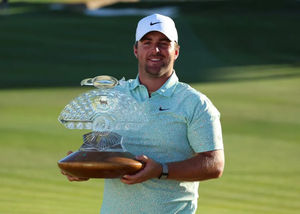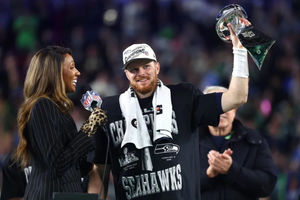What The Hell Is Going On In Selena Roberts's Auburn Story?

Welp. In the wake of the big, ugly story that Selena Roberts dropped on the Auburn football program yesterday, several of the players quoted in the report are now rowing furiously backward and claiming they were misquoted.
The denials began on Twitter shortly after the story was published. In her report, Roberts relies on former Auburn players, both named and unnamed, to make the case that not only was the Auburn football program rife with corruption during the 2011 season, but also that it allowed former safety Mike McNeil to be railroaded with a possibly frivolous robbery charge for the sake of protecting the program.
Mike Blanc, who was quoted in the story alleging that coaches attempted to participate in pay-for-play schemes, had grades altered for ineligible students, and discriminated against black players, sent out this this tweet last night:
Then came some backtracking from Antoine Carter, who was quoted in the story alleging that black players were drug tested more often than white players by the team:
And finally, a denial from Neiko Thorpe, whom Roberts quoted as saying top-flight recruits were "treated like kings" when they came to visit the school:
Blanc also spoke to AL.com, and elaborated on his allegations of being misquoted. He took particular issue with the story's claim that he knew that the Auburn coaches had offered wide receiver Darvin Adams "several thousands of dollars" to stay for his senior year:
"Yeah. Me, personally, I don't have any direct knowledge of it," Blanc said. "You just hear stuff. I'm pretty sure other guys on the team that know more, like guys that were closer to Darvin and these other players I know. Darvin probably would have told those guys. I know Mike and Darvin were really cool. Maybe Darvin could have shared some information with Mike. But, me, personally, I don't know nothing factual that any guys got any money."
AL.com was also able to get in touch with Roberts, who stands by her reporting and thinks that Blanc, Thorpe, and Carter are backtracking from their comments due to fear of an inevitable backlash:
It takes a lot of courage to speak the truth and to go out and have some conviction about, you know, a subject that would be very popular, obviously. A subject that, let's face it, at Auburn, draws a lot of backlash. I think it's unfortunate that [Blanc] is taking that stance, but given the pressure he's under I can see how it happens.
So, what the hell do we make of all of this? The main issue with Roberts's story is that it is actually two distinct stories jammed sloppily together. There's the story of the athlete, Mike McNeil, who finds himself abandoned by a powerful football program and who now faces a long stint in prison for a crime he insists he didn't commit. And there's the standard NCAA scandal story—pay-for-play schemes and crooked coaches (the most memorable detail is Will Muschamp pulling $400 out of his drawer).
It's the latter that has the principals walking sideways in the other direction, and it's the attempt to link the two stories—by suggesting a conspiracy in which Auburn, for some reason, leverages its political power in an effort to ensure a former player's conviction—that gives the whole report an air of grasping implausibility. Here's Roberts, leaning on Clifton McNeil, Mike McNeil's grandfather, doing what she can to fuse her two stories as one:
What motive would Auburn have to interfere? In the months leading up to the robbery, Auburn had been dealing with behavioral issues involving players. Allegations that then-quarterback Cam Newton was part of a pay-to-play scheme further fueled the image of a rogue school lacking discipline. “Maybe there is a fear in Auburn’s mind that Michael knows too much,” says Clifton. “Their fear is that Michael will expose the family secret. It’s a way to silence him.”
Mike McNeil might well be innocent; Auburn might well be dirty. What the one thing has to do with the other is still unclear.
Why Alabama vs. Ohio State Must Happen as Scheduled
The NBA’s Tanking Problem Is Getting Worse — Not Better
NBA Picks Tonight: Three Best Bets Before the All-Star Break
- Best NBA Betting Picks for Wednesday Feb. 11th Slate
- Early Super Bowl LXI Odds Favor Seahawks, Sleeper Betting Picks & More
- Sunday Feb 8th NBA Picks: Three Best Bets Today
- Super Bowl Betting Preview: Seahawks vs. Patriots Breakdown & Pick
- The Most Fun Super Bowl Prop Bets You Can Make This Year
- Super Bowl 60 Prop Bets: 10 Best Bets for Patriots vs. Seahawks
- UFC Fight Night at the Apex Best Betting Picks and Predictions












